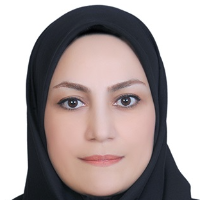The Effect of Psychological Immunization Program on Pessimistic Attribution Style of Boy Students with Dyslexia
Author(s):
Abstract:
Objective
The present study was aimed to determine the effectiveness of psychological immunization program on pessimistic attribution style in boy students with dyslexia. Materials and Method
In this quasi experimental study, pretest and post test design with control group was used. Thirty boy students with dyslexia were selected randomly from Learning Disabilities Centers in Isfahan City. They were assigned to experimental and control groups in equal (15 individuals in each group). Their intelligence quotient and learning ability were measured by Raven Intelligence Progressive Matrices and Learning Test respectively. All students answered to Children Attributional Style Questionnaire (CASQ) before and after training sessions. Experimental group participated in 10 weekly training sessions (twice a week; each session lasts for 60 minutes) and received psychological immunization program. Results
The results of analysis of covariance showed that psychological immunization training program has significantly (p<0.001) decreased the pessimistic attribution style of experimental group in comparison to control group. Conclusion
It seems that the psychological immunization intervention can be considered as an educational and rehabilitation program and lead to modify pessimistic beliefs of boy students with dyslexia.Keywords:
Language:
Persian
Published:
Archives of Rehabilitation, Volume:15 Issue: 3, 2015
Pages:
52 to 63
https://www.magiran.com/p1385874
سامانه نویسندگان
مقالات دیگری از این نویسنده (گان)
-
Effect of Digital-Based Cognitive Rehabilitation on Executive Functions in Children with Attention Deficit/Hyperactivity Disorder
Milad Haidarian, Masoume Pourmohamadreza-Tajrishi, Vahid Nejati, Mohsen Vahedi
Middle East Journal of Rehabilitation and Health Studies, Jan 2025 -
Investigating the Effectiveness of Cogniplus Cognitive Training Program on Social Cognition (Theory of Mind) in 6- to 8-year-old Children With Autism Spectrum Disorder
Zahra Tajik, Masoume Pourmohamadreza-Tajrishi*, Marjan Posht Mashhadi, Razieh Bidhendi Yarandi
Archives of Rehabilitation,


